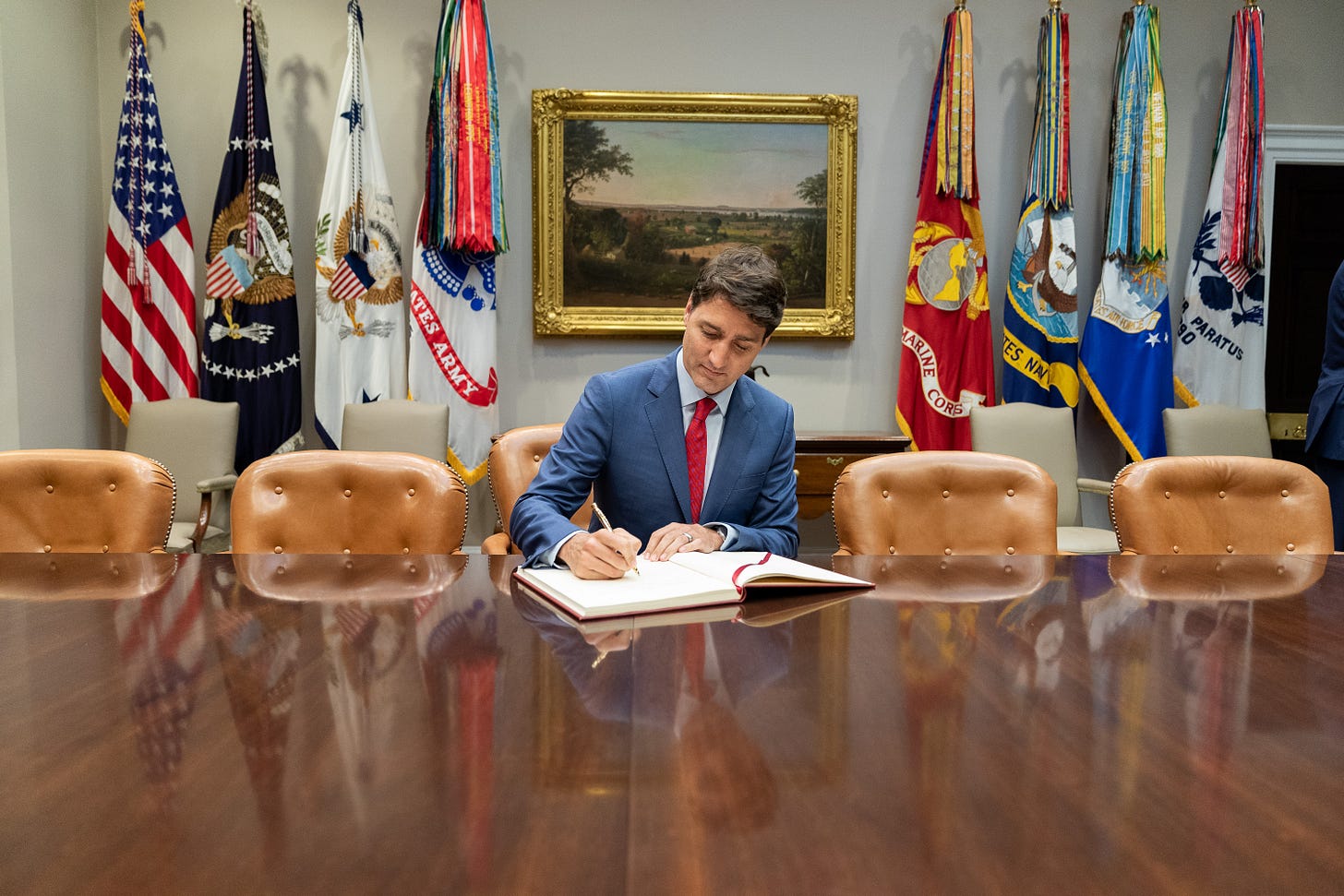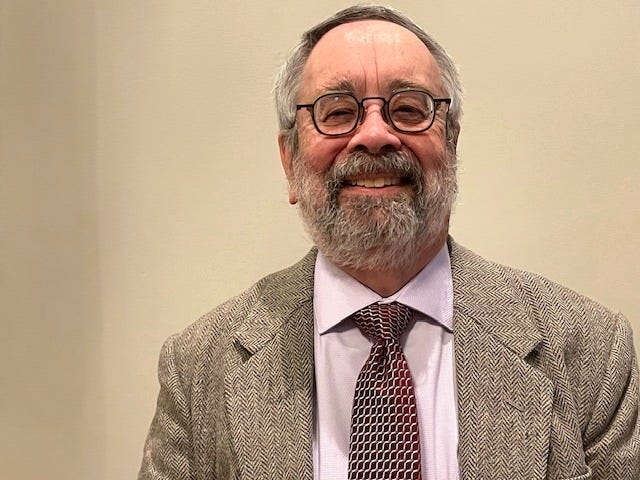Does Canada need an overseas spy agency? They want to talk about it.
Some security experts want to resurrect an old Conservative Party promise, following President-elect Donald Trump's recent remarks about Canada

After President-elect Donald Trump suggested Canada could be the United States’ “51st state” at a Mar-a-Lago dinner meeting, and Prime Minister Justin Trudeau announced his plans to resign, some Canadians want to resurrect an old debate. Does the Great White North need a foreign intelligence service? Canada does not have an overseas spy agency collecting human intelligence and they think it represents a significant vulnerability for their security and U.S.-Canadian relations.
“I heard it explained once as like a decision post-World War II, some kind of unease with the concept of engaging in that type of activity,” a Canadian government official told me on the condition of anonymity.
The saying “Gentlemen don’t read each other’s mail” gets “trotted out” to rationalize Ottawa’s decision, the official said. Nevermind that it was U.S. Secretary of State Henry Stimson who said it. Or that he ate his words during World War II, in the months before Japan attacked Pearl Harbor.
In the 2006 election, the Conservative Party of Canada vowed to establish a foreign intelligence service. But after the party’s victory and for the next nine years, Prime Minister Stephen Harper never followed through on his promise.
“It was a campaign pledge that hadn't been thought through,” a retired official who worked in the security and intelligence field told me. We spoke on the condition of anonymity so that he could speak freely. After several reviews, Harper chose to allocate money to existing agencies, which don’t collect human intelligence abroad. “I was disappointed that we didn't go further to have a real conversation about what we could have done. But that's bureaucracy.”
In a country where voters and government officials prioritize social services over defense spending, the former official said Canada's intelligence community has long held an ambivalent view about creating a new intelligence service “simply because it would suck up money that they didn't have.”
Former intel officer Laurie Storsater confirmed that view. He held several intelligence and security positions in Canada’s NSA-counterpart, the Communications Security Establishment (CSE), and its National Security Council equivalent, the Privy Council Office. He also described a scarcity mindset in Canada’s intelligence apparatus — a fear that a new agency might “start raiding the best and brightest of our people.”
And he rues that mentality. In a phone call, he told me, “Canada missed an opportunity after 9/11. There's no doubt about it, that would have been a good time to have started a new agency.” He is thinking about China, Russia, and Iran, as well as India, following the assassination of a Canadian Sikh activist in British Columbia. But many Canadians believe that if they didn’t need an overseas intel service during the Cold War, why would they need one now?
“The pressures that we're going to be under from Trump may cause a new government in this country, whether it's conservative or liberal, to think about this again,” the former official says.
Already, Canada is on the path to increase its defense spending to reach a GDP target of 2%. But he has doubts that it will be enough. “A very broad rethinking” is starting in the country, he says, after Trump’s 51st state remark. “Nobody knew if Trump was joking or not. I think there's beginning to be a sense that he's not joking… I don't think anybody thinks that America is going to take over Canada, but there's going to be pressure and it's not going to be nice.”
He says Canada has sees itself as “part of a club” led by the United States. “But maybe the rules of that game are shifting and maybe we can't rely on that club the way we used to.”
Mission don’t get cut off
Trump appears to enjoy being seen as unpredictable. China’s leader “knows I’m f---ing crazy,” he told journalists when he was campaigning last year. He has also shown some antipathy toward existing alliances and partnerships.
It is unclear whether that would ever extend to the Five Eyes, one of the world's oldest and most important intelligence-sharing arrangements. The pact started in the 1940s between the U.S. and the UK, then Canada, Australia, and New Zealand. Dividing up the globe to cover specific yet overlapping regions, the partner countries monitor land, sky, and water. Terrorists and foreign adversaries. Weapons movements, satellite deployments, shipping traffic, and more.
The Five Eyes have endured strain in the past. But I’m also told they operate on intelligence exchanges. “We want to make sure that we're in sync with our allies,” Laurie said. “Otherwise, there could be issues with information sharing.”
The other official put the concern more bluntly: “I think the question is with Trump, he's going to start saying, ‘Well, how much more can you do? What have you done for me lately?’ The vulnerability is if we fail to show that we are a useful partner. At the end of the day, that's why we would be cut off.”
Canada may not contribute human intelligence beyond its borders, but it is highly respected in the arena of signals intelligence through the CSE, its version of the NSA. The country has proven particularly adept at providing intelligence on terrorist plots. But equally important, much of Canada is located in the Arctic, where ice is melting and the great power competition for vast minerals is on. And I have come to learn that among CSE’s priorities is a laser focus on the Arctic.

“During the Cold War, we were very good at Arctic [activity],” Laurie tells me. “And I don't want to name the targets, but we were very, very good at the time when we were worried about ICBMs and bomber attacks.”
The agency shared 132 intelligence reports on Arctic security between 2023 and 2024, including analysis on the intentions, military capabilities, and technological advancements of foreign states.
And yet, Trump has called into question U.S. plans for an Arctic icebreaker collaboration with Canada, saying that he told Trudeau, “We don’t need a partner.”
In lieu of overseas HUMINT
The Canadian Security Intelligence Service (CSIS) was established in 1984. It is focused on Canada’s domestic security. Then came the Global Security Reporting Program (GSRP) in 2002, a post-Sept. 11 program with about 30 officers stationed across the globe. But they are diplomats, not spies.
“What they were really doing, quite frankly, was recreating [an older] political economic reporting stream,” the retired Canadian official told me. “They called it ‘security reporting’ because that's how they got the money.”
GSRP’s reports are shared with the Canadian government, the Five Eyes, and sometimes other allies. But critics have accused it of being a “muddled halfway house” between diplomacy and intelligence gathering, with little tactical advantage. After all, a Chinese court still charged a former GSRP official with alleged espionage.
Supporters of the GSRP call such logic a “Chinese trap,” saying that Beijing knows the difference between diplomatic and intelligence work — it was just a tit for tat after Canada arrested the daughter of a Chinese tech billionaire, at the request of the U.S. no less.
“[GSRP] is a program that met and exceeded the expectations of its creators after 9/11 and had delivered for Canadians over the years,” wrote Daniel Livermore, a former diplomat who did not respond to my request for comment. He said advocates for an overseas intelligence service came from the domestic security service, whose “shoddy, problematic work” since Sept. 11 “should have robbed it of any credibility and put an end to its international pretensions.”
An independent analysis of the program found numerous problems with their work. The National Security and Intelligence Review Agency found “an absence of risk assessments, security protocols, and legal guidance.” It also said the program “does not have appropriate safeguards in place regarding the safety of contacts overseas” and has “insufficient deconfliction” with the Canadian Security Intelligence Service. These findings were from 2020 but took three years to be released publicly.
What lies ahead
An overseas intelligence service could take years to build and it would not be cheap. Proponents believe it could start off small, with a limited range of targets. And it would strengthen Canada’s cybersecurity and domestic security agencies with important tips and leads.
The former official envisions that the Canadian Security Intelligence Service would fight for the mandate, arguing that it would be cheaper just to expand its own capacity. “An act of bureaucratic empire-building,” he said. But the laws that govern a domestic intelligence service stand in stark contrast with a foreign intelligence service where “there's no law other than don't get caught,” he said. Two different cultures, two different tolerances for risk.
Whenever the debate restarts, he hopes that expedience won’t rule the day. “I see that as a bit of a battle that's going to unfold largely behind the scenes,” he tells me.
I asked Laurie if this was all really just a pipe dream for the advocates. “I don’t think it’s a pipe dream,” he told me. In the next ten to twenty years, “I'd give it maybe a 60% chance of happening. But I hope I'm wrong.”


